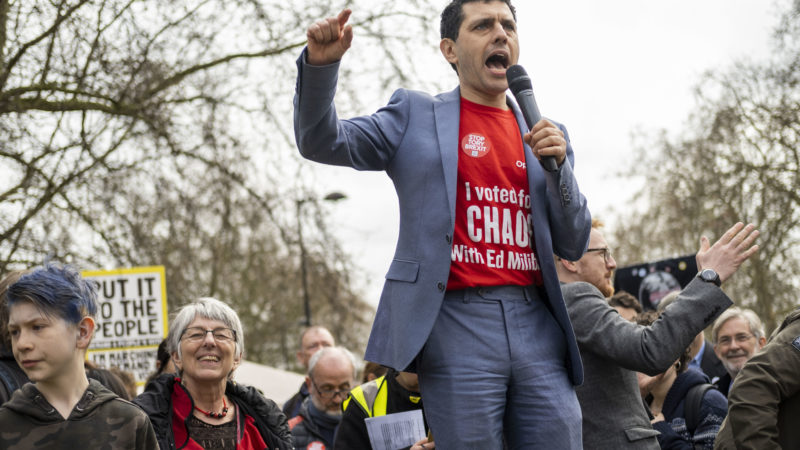
Saturday sittings in the House of Commons fell out of fashion in the 1730s thanks to Sir Robert Walpole, who wanted to “secure at least one day’s hunting a week”. This Saturday, Boris Johnson and his shambles of a government will put their Brexit deal to the House in their very own hunt: a hunt for our NHS; a hunt for our environmental standards; a hunt for our workers’ rights.
Yes, this Prime Minister’s deal is even worse than his predecessor’s, with weaker level playing field commitments and a risk of reduced access to our closest market, with the ruling out of a new customs union. MPs will be asked to vote on it at just two days’ notice, with no time to do the proper scrutiny such an important constitutional question absolutely requires. Once again, this dangerous Prime Minister of a minority government is treating parliament with utter contempt.
As Jeremy Corbyn has said, the deal “doesn’t meet our demands or expectations – it creates a border down the Irish sea, and it leads once again to a race to the bottom in rights and protections”. Our leader is rightly calling this a “sell-out deal”, and one that puts our existing rights, standards and protections all at risk. The beefed up political declaration does nothing to bind the government to uphold these – exactly the reason they have been moved over from the withdrawal agreement.
Keir Starmer has stated that it “paves the way for a decade of deregulation”. He, too, is right: this would only be the start of Brexit, not the end, with the country facing years and years of negotiating the next steps, new arrangements, new relationships and new, disadvantageous trade deals.
Some of my colleagues in the Parliamentary Labour Party will no doubt feel they are under some pressure leading up to tomorrow. Johnson will pitch this as his deal versus no deal, and we all wish to avoid a no deal scenario. But the Benn Act compels the Prime Minister to request an extension if his deal falls, and if a request is made and we can demonstrate a viable path forward, the EU27 will have to agree to it. A crash-out no deal Brexit is in nobody’s interest, including our nearest neighbours and friends.
I know colleagues are also concerned about the need to bring the country together and the need to move on to other crucial issues. I share these concerns. But that cannot happen with a deal that tramples on working people, one that will result in years of negotiating new relationships, sucking all the energy out of our political process. This is energy that we should be spending on tackling the greatest issue of our time: the climate crisis. Nobody can seriously say that is what “taking back control” looks like.
Labour MPs should listen not only to Jeremy and Keir, but also to Frances O’Grady who has said plainly that all MPs should vote against this deal, and that it “would clear the way for a grubby trade deal with the US, and for Donald Trump to get his hands on our NHS”. And on Saturday, while we are in parliament, every MP should have at the front of their minds the hundreds of thousands of people outside demonstrating for a final, democratic say on Brexit: a public vote.
We need to be absolutely clear that the choice between a bad deal and a crash-out no deal Brexit is not a democratic choice at all. If Boris Johnson has confidence in his deal, he should put it back to the people in a public vote against Remain. We need to stop Boris Johnson, stop his dreadful deal, and ensure we get an extension. This is our top priority.
I urge all friends and colleagues in the PLP to vote against this deal and for a public vote to end this political crisis. Only then can we move forward and get a Labour government to transform our society. We will not be forgiven if we do not stand up for our values at this most crucial of times.
For friends on the streets: please join the left bloc on the People’s Vote march if you can.




More from LabourList
Government abandons plans to delay 30 local elections in England
‘The cost of living crisis is still Britain’s defining political challenge’
‘Nurses are finally getting the recognition they deserve’